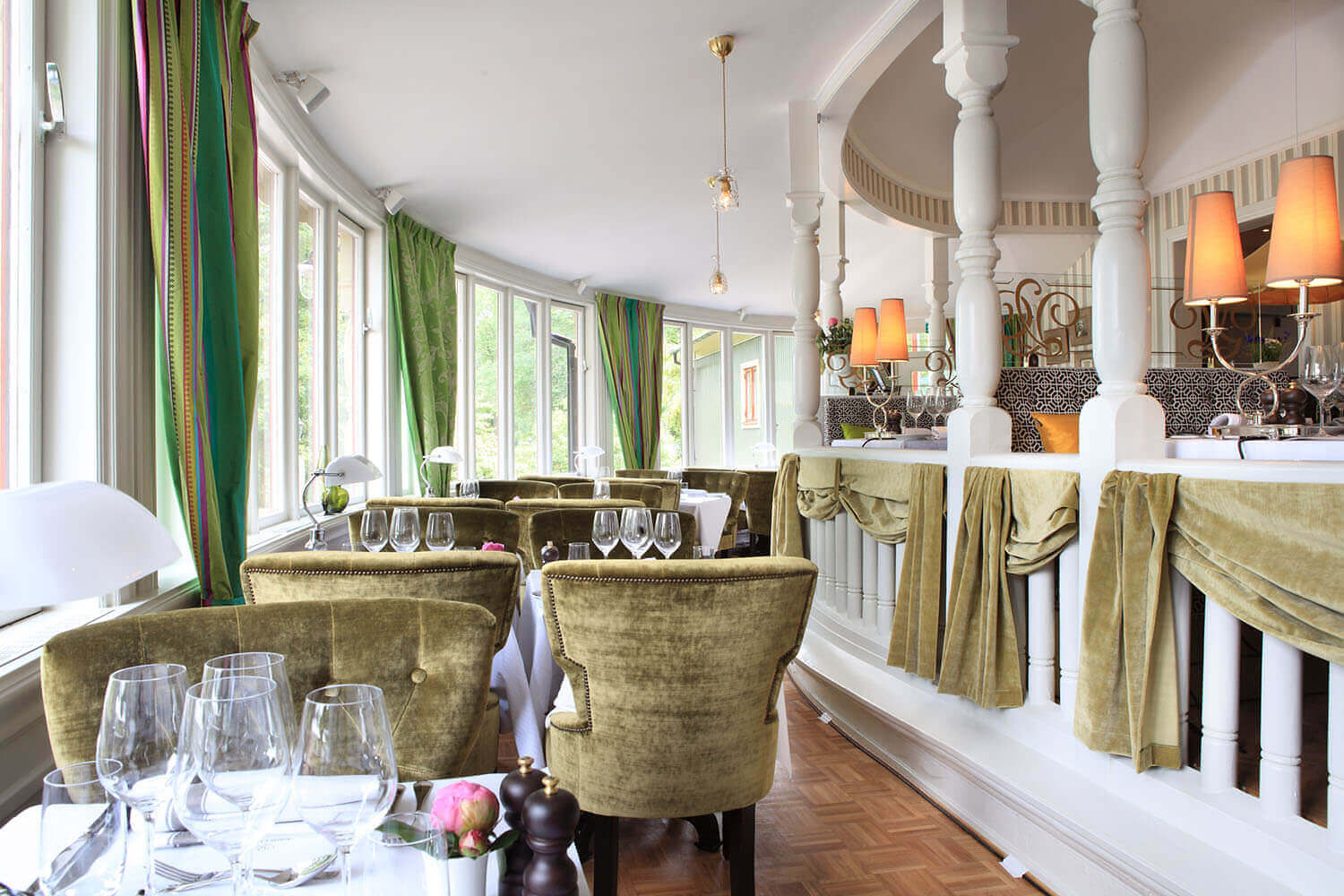
Villa Godthem uses ozone to reduce odors from the grease trap to a minimum
Introduction.
The charming restaurant Godthem is beautifully situated at the Royal Djurgården in Stockholm and has been a popular gastronomic feature in Stockholm since 1897. Most famous is the restaurant for its charcoal roasted beef served on a wooden board, that gave Godthem a well-deserved reputation ever since the restaurant was opened in 1874.
The home was built as a gift to the well-known opera singer Carl Johan Uddman. The story of the name Godthem tells that the somewhat round Uddman made the unusual decision to walk home from the Opera, and as soon as he entered the hall, he exclaimed pantning “Jag har gått hem!” (I have walked home!). The restaurant was inaugurated 2011 after an extensive renovation and is now considered to have one of Sweden’s most beautiful dining rooms.
The problem.
Grease in the sewer system has become an increasingly large problem. The municipal sewer system is not made to receive large amounts of grease from restaurants and municipal commercial catering. In an article in the Swedish newspaper Dagens Nyheter, September 8, 2014 one could read that there are 50 drainage stops caused by fat every year only in Gothenburg.
The same figure for Stockholm was half of that. When wastewater is cooled, the grease solidifies and gets stuck on the walls in the sewage pipes which eventually clogs the pipes and can lead to a stop. To prevent the release of grease in the sewage pipelines, all operations that handles food must install a grease trap. The difference in the number of drainage stops between the cities was explained by the fact that Stockholm had introduced stricter requirements for grease traps. Increased use of grease traps is necessary but can cause inconvenience in the form of unwanted odors that interfere with neighboring residents. When grease accumulates, bacteria begin to grow and emit hydrogen sulfide. Hydrogen sulfide, which is a corrosive and toxic gas at high concentrations, gives rise to strong odors similar to rotten eggs. At Villa Godthem the bad smell spread from the grease trap to the surroundings which led to complaints and irritation from neighboring residents. That problem had to be addressed.
The solution.
The property manager contacted the company who handles the maintenance of the grease trap, who in turn contacted us for advice on how the odor problem could be fixed. A mutual decision was made to install an ACT-3000P ozone generator. An ozone generator cleans the air with the help of ozone that quickly breaks down hydrogen sulphide and other odors. The ozone is injected directly into the grease trap venting, so that the odor problem is reduced both in operation and when the grease trap is emptied.
The Ozonetech ACT-3000P is designed to reduce smells from, for example, grease traps. The ozone is generated in a closed chamber which is air-fed. The air is supplied by a separate pump to guarantee that sufficient ozone is generated.
Since the ozone generator produces ozone on-site, no continuous refill of chemicals or any other substance is needed. The ozone air treatment starts directly when the ozone generator is connected to the mains. And the air is taken from the surroundings. Free raw material, no transport.

Evaluation.
After the installation, an immediate and lasting improvement was noticed. The smell around the restaurant disappeared, as did the irritation from the surrounding residents. The odor reduction did not entail any major extra costs. The total energy consumption for the ozone generator and pump is a modest 32 watts, which means an operating cost of 20-30 dollars per year, which can be compared with, for example, an operating cost of many hundreds of dollars per year for a system based on bacteria which requires continuous refilling.
The benefits of the Ozonetech ACT-3000P are many. The tank cleaning companies do not emit strong smells when they empty the grease trap. Property- and restaurant owners do not need to worry about the smell, and the irritation from nearby residents decreases.




